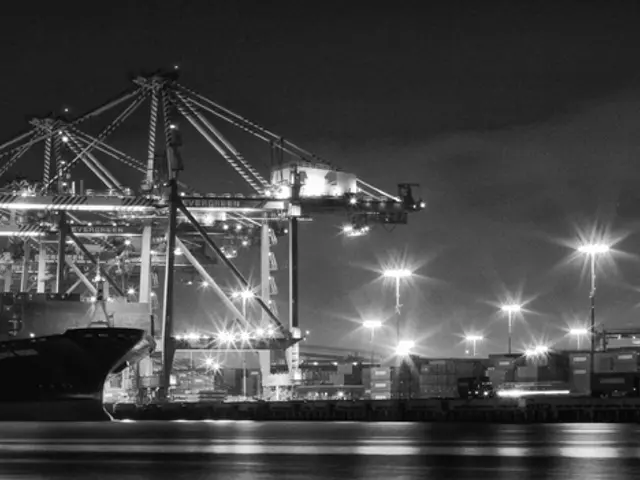Polish Foreign Minister Delivers Firm Response to Russia: "You Shall Not Reign Here Again in Parliament"
In a fiery, historically-charged speech to the Polish parliament, Foreign Minister Radek Sikorski unleashed a scathing condemnation of Russian imperialism today. The minister's address, delivered amid ongoing regional instability and Russia's continued war in Ukraine, left little doubt about Poland's stance: "They'll never rule here again - not in Warsaw, not in Kyiv, not in Vilnius, not in Riga."
Delivered to lawmakers as part of his annual foreign policy expose, Sikorski bristled with defiance, reflecting growing wariness among Polish leaders about Russian military ambitions and hybrid threats in Central and Eastern Europe. By depicting Russia's aggression as a neo-imperialist project, the minister made it clear that Poland considers itself not just a defensive bulwark for NATO's eastern flank, but a protector of neighboring nations' sovereignty.
Historical and personal significance laced Sikorski's speech, echoing the long, often grueling shadow of Russian domination that has hung over Poland and its neighbors for centuries. His words, though undoubtedly keyed with emotion, are substantiated by a foreign policy consensus that has emerged in Poland since Russia's full-scale 2022 invasion of Ukraine: that Russia must be met with firm resistance at all levels.
In challenging Russia's ideology, Sikorski referenced Kremlin-linked political theorist Aleksandr Dugin, whose assertions, however extreme, have found traction among certain segments of the Russian elite and are seen as underpinning the Kremlin's expansionist ambitions. But, Sikorski countered, visions of an independent Poland with no place on the Eurasian continent are patently absurd.
"They'll never rule here again, neither in Kyiv nor in Vilnius nor in Riga nor in Tallinn nor in Chisinau," declared Sikorski, leaving no doubt about Poland's resolve. This message, born of Polish history, is not just rhetoric. It's Poland's firm stance that Russia must be faced down diplomatically, militarily, and morally. And in this conflict, the outcome is crucial, as it will shape the future of Europe's security architecture.
Sikorski implored the international community not to divide on this issue, underscoring that a fragmented response would only hinder the defense of democratic freedoms. He called for continued military and financial support for Ukraine, stating that a lasting peace can only be achieved through strength and unity.
Ultimately, as this conflict continues, Poland's role in the European security landscape has never been clearer. Offering substantial aid to Ukraine and hosting millions of refugees, Poland has demonstrated itself to be not just a frontline state but a cornerstone of European stability. The minister's speech aimed not just at Moscow but at allies as well, urging them to maintain their resolve and not to weary in the face of adversity.
"Russia's actions will have severe consequences. Their aggression cannot be tolerated, and we must hold them accountable for their international law violations and atrocities," warned Sikorski. And throughout his speech, he reiterated the importance of unity within the West, stressing the need for the Europe to remain united in imposing sanctions and increasing strategic autonomy.
Though Russia may continue to press its claims, Poland stands firm in its defense of freedom. Czechoslovakia, Hungary, and Lithuania have all faced the crucible of foreign domination, and the "never again" mantra takes on a new significance in light of the current conflict. With leaders like Sikorski setting a firm tone, Poland is sending an unmistakable message: the days of appeasement are over, and the defense of democracy and sovereignty in Eastern Europe is a mission that Poland is prepared to lead.
- The minister's speech to the Polish parliament, a part of his annual foreign policy expose, highlighted Poland's stance against Russian imperialism, based on a foreign policy consensus that emerged in Poland after Russia's invasion of Ukraine in 2022.
- In his speech, Foreign Minister Radek Sikorski depicted Russia's aggression as a neo-imperialist project, considering Poland not just a defensive bulwark for NATO's eastern flank, but a protector of neighboring nations' sovereignty.
- Sikorski's words reflected growing wariness among Polish leaders about Russian military ambitions and hybrid threats in Central and Eastern Europe, and he made a point to challenge Russia's ideology, referencing Kremlin-linked political theorist Aleksandr Dugin.
- By referring to cities like Kyiv, Vilnius, Riga, Tallinn, Chisinau, and suggesting that Russia will never rule these cities again, Sikorski expressed Poland's resolve to face down Russia diplomatically, militarily, and morally.
- Sikorski implored the international community not to divide on this issue and urged continued military and financial support for Ukraine, stating that a lasting peace can only be achieved through strength and unity.
- In this conflict, Poland's role in the European security landscape has become clearer, as it offers substantial aid to Ukraine and hosts millions of refugees, demonstrating itself to be not just a frontline state but a cornerstone of European stability.








